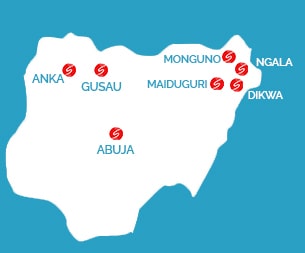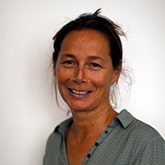
Context
In the north-west, the situation has also worsened due to inter-community violence, banditry and natural disasters, causing frequent population displacements in the area, where very few humanitarian organizations are present.
Severely affected by conflicts, climate shocks and epidemics, the population’s needs are extensive: protection, health, water, sanitation and hygiene (WASH), food security and livelihoods (FSL), shelter.
The security situation remains volatile for NGOs and the country has also been faced with a deadly cholera epidemic, which now recurs every year.
- 216.7 million inhabitants
- 163rd out of 191 countries on the Human Development Index
Our action

-
Mission
opened in 2016 -
Team
15 international staff
199 national staff - Budget 6.92M€
In 2022, SOLIDARITÉS INTERNATIONAL provided assistance for 250,000 vulnerable people in north-east and north-west Nigeria.
Working with local, international and sectoral partners, our NGO delivered a full range of “WASH”, “Shelter” and “FSL” services to displaced populations and host communities. Our teams also developed a new approach to repairing shelters, based on community involvement, which increases the capabilities of participants.
Finally, the emergency team played a key role in the “Cholera” response in Borno state, by providing cholera kits, disinfecting the areas surrounding outbreaks and conducting hygiene promotion activities.
Institutional and private funding partners ECHO, BHA, CDCS, NHF (OCHA), Start Fund,
UNICEF
Operating partners INTERSOS, MENTOR Initiative
Our impact

Access to basic services and livelihood recovery
- Rehabilitation and improvement of WASH facilities
- Construction of shelters for displaced people, distribution of shelter repair kits and cookstoves
- Targeted food aid

Strengthening the resilience of individuals, communities and institutions
- Improvement of fecal sludge management
- Development of irrigation channels

Rapid multi-sectoral emergency response, preparation for climate shocks and epidemics
- Rapid multi-sectoral assessments
- Emergency shelters, non-food items, WASH and food aid
Should you have any questions, please contact Raphaëlle Goepfert.

Vacancies
At head office
Worldwide
Internships
